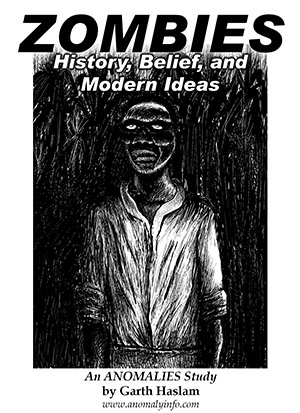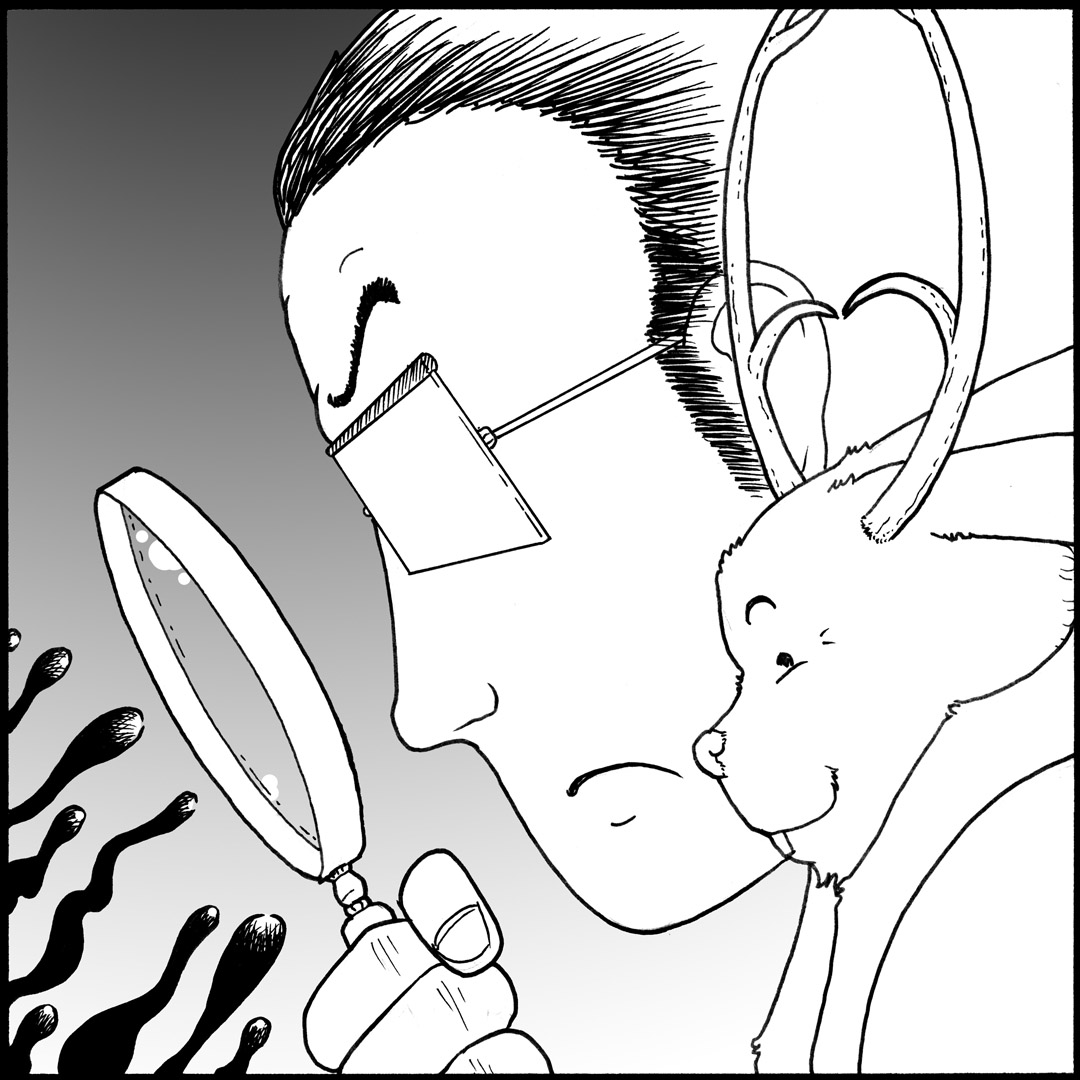1891 (pub): The Footless and the Blind
The following Russian folk-tale was first presented in English by Jeremiah Curtin in 1891:
In a certain kingdom, in a certain state, lived a terrible Tsar. He was famed through all lands, — a terror to kings and princes. The Tsar took a thought to marry, and published an order in every town and village that whoever would find him a bride ruddier than the sun, fairer than the moon, and whiter than snow, would be rewarded with countless wealth. The report of this went through the whole kingdom; and from small to great, all were talking and thinking, but no one offered to find such a beauty.
Not far from the king’s castle was a large brewery. The working-men came together for some reason, and began to say that a man might get much money from the Tsar, but where could such a bride be found?
“Well, brothers,” said a man, Nikita Koltoma by name, “no one can find a bride for the Tsar without my help; but if I undertake it, then he will find her without fail.”
“What art thou boasting of, thou fool? How couldst thou do that deed? There are famous and rich people, not the like of us, and they are afraid. Thou couldst not do it in a dream, much less in thy senses.”
“Well, say what ye please; but I have faith in myself,“ said he, “and I’ll get her.”
“Ah, Nikita, don’t boast; thou knowest our Tsar is terrible, and for an empty boast he will put thee to death.”
“He won’t put me to death; he will reward me with money.”
They reported these speeches to the Tsar himself. He was delighted, and gave command to bring Nikita before his bright eyes. The soldiers ran, seized Nikita Koltoma, and hurried him to the palace. His comrades called after him: “Well, brother, thou hast said it; thou thinkest to joke with the Tsar: go now and give answer.”
They brought Nikita to the great palace, and the terrible Tsar said to him: “Thou, Nikita, dost boast that thou art able to find me a bride ruddier than the sun, fairer than the moon, and whiter than snow.”
“I can, your Majesty.”
“Very well, brother. If thou wilt do me that service, I will reward thee with countless treasure and make thee first minister; but if thou hast lied, I have a sword, and thy head leaves thy shoulders.”
“I am glad to serve thee, Great Tsar; but command that I have a holiday for a whole month."
The Tsar consented, and gave over his own signature an open order to Nikita, commanding that in all eating-houses and inns they should give him gratis all kinds of food and drink.
Nikita went through the capital to enjoy himself. Whatever inn he entered, he showed the paper; immediately they brought him everything that his soul desired. He caroused one day, a second, a third; a week, a second, a third week. And now the term is passed; 't is time to go to the Tsar.
Nikita took farewell of his friends, went to the palace, and asked the Tsar to collect for him twelve brave youths, the same in stature, in hair, and in voice, and to prepare besides thirteen white woven tents with golden embroidery. Everything was soon ready; the young men were collected at once, and the tents made.
“Now, Great Tsar,” said Nikita, “get ready, and we will go for the bride.”
They saddled their good steeds, packed the tents on the horses. After that they had a prayer in the church, took leave of the people of the town, sat on their steeds, and galloped away; nothing but a pillar of dust behind them. They travelled one day, a second, and a third. In the open field was a forge. Said Nikita: “Go straight ahead with God, and I will run into the forge and smoke a pipe.” He entered the forge; fifteen blacksmiths were forging iron inside, striking with their hammers.
“God aid you, brothers! "
“God save thee, good man! ”
“Make me a staff fifteen poods weight.” [One pood = 36 pounds.]
“To make it we are not unwilling; but who will turn the iron? Fifteen poods are no joke."
“That is nothing, brothers; you beat with the hammers, and I’ll turn the iron.”
The blacksmiths went to work and forged an iron staff of fifteen poods. Nikita took the rod, went out into the field, and threw it up ninety feet, held out his hand; the iron staff fell on his hand, but was not equal to the strength of the hero, it broke in two. Nikita Koltoma paid the blacksmiths for their work, threw the broken rod to them, and rode away. He caught up with his comrades. They travelled three days more; again there was a forge in the open field.
“Go on, I will enter this forge,” said Nikita. He went into the forge. Twenty-five blacksmiths'were working inside, forging iron, pounding with their hammers.
“God aid thee, boys! ”
“God save thee, good man! ”
“Make me a staff twenty-five poods in weight.”
“To forge is no trouble; but where is the man with strength to turn so much iron? ”
“I will turn it myself.”
He took the twenty-five poods weight of iron, heated it red hot, and turned it on the anvil while the blacksmiths pounded with their hammers. They made a staff twenty-five poods in weight. Nikita took that staff, went out into the open field, threw it up one hundred and fifty feet, and held out his hand: the staff struck the hero’s hand and broke in two.
“No, this will not do,” said Nikita. He paid for the work, sat on his horse, and rode away. He overtook his comrades. They travelled a day, a second, and a third. Again there was a forge in the open field.
“Go on,” said Nikita; “I will smoke a pipe in this forge.”
He entered the forge, where fifty blacksmiths were tormenting an old man. A gray-haired old man was lying on the anvil; ten men were holding him with pincers by the beard, and forty men were pounding him on the sides with hammers.
“Have pity on me, brothers!” cried the old man, with all his strength. “Leave the life in me to do penance!”
“God aid you!” said Nikita.
“God aid thee, good man!” said the blacksmiths.
“Why are ye tormenting the old man?”
“Because he owes each one of us a rouble, and he will not pay it. Why should n’t we beat him?"
“What an unfortunate man,” thought Nikita; “for fifty roubles he suffers such torment!” And he said to the blacksmiths:
“Listen, brothers: I'll pay you for him; let the old man go.”
“Agreed, good man; it is all the same to us from whom we get the money, so that we have it."
Nikita took out fifty roubles. The blacksmiths took the money, and the moment they freed the old man out of the iron pincers, he vanished from the eye. Nikita looked. “But where is the old man?"
“Oh, look for him now; he is a wizard!"
Nikita ordered them to forge an iron staff of fifty poods. He hurled it up three hundred feet, and held out his hand: the staff stood the test, did not break. “This will do," said Nikita, and rode off to overtake his comrades. All at once he heard a voice behind him. Nikita Koltoma stopped; he looked around, and saw the same old man running after him.
“Thanks to thee,” said the old man, “for saving me from cruel torture; I suffered that misery for thirty years exactly. Here is a present to remember me by, — take it; it will be of use to thee; ” and he gave him a cap of invisibility. “just put it on thy head; no man will see thee.”
Nikita took the cap, thanked the old man, and galloped on. He overtook his comrades, and all rode together. Whether it was long or short, near or far, they came to a castle; around the castle was a great iron paling; there was no way to enter, on foot or on horseback. The terrible Tsar said: “Well, brother Nikita, there is no passage farther."
Nikita Koltoma answered: “Why not, Great Tsar? I’ll go through the whole world but I’ll find thee a bride. This paling is no stop to us. Now, boys, break the paling; open the gate to the wide court!”
The good youths came down from their horses and went at the paling; but no matter what they did, they could not break it, it stood fast.
“Oh, brothers,” said Nikita, “ye sail in shallow water! No use in my depending on you; I must work myself.”
Nikita sprang from his horse, went to the paling, took it with his heroic hand, pulled once, — the whole paling was on the ground. The terrible Tsar and the young men rode in on the broad court, and there on the green meadow they put up their white woven, gold-embroidered tents, ate what God sent them, lay down, and from weariness slept a sound sleep. Each one had a tent, but there was none for Nikita Koltoma; he found three worn bark mats, made himself a little hut, lay down on the bare ground. As to sleeping, he slept not; he waited for what would be.
At the morning dawn Yelena the Beautiful woke up in her chamber, looked out through her lattice-window, and saw that thirteen white woven tents were standing on her green meadow, and in front of all a small hut of bark rugs.
“What is this?” thought the Tsarevna; “whence have these guests come? See, the iron paling is broken!”
Yelena the Beautiful was terribly enraged; she called her powerful, mighty hero, and said: “To horse this minute! Ride to the tents and give all those disobedient scoundrels to a cruel death; throw their bodies over the fence, and bring the tents to me."
The powerful, mighty hero saddled his good steed, put on his battle-armor, and went toward the unbidden guests. Nikita Koltoma saw him. “Who goes?" asked he.
“And who art thou, rude fellow, that askest? "
These words did not please Nikita. He sprang out of his hut, caught the hero by the foot, dragged him from the horse to the damp earth, raised his iron staff of fifty poods, gave him one blow, and said: “Go now to thy Tsarevna, tell her to stop her pride, not to waste her men, but to marry our terrible Tsar.”
The hero galloped back, glad that Nikita had left him alive, came to the castle, and said to the Tsarevna: “Men of immeasurable strength have come to our place. They ask thee for their terrible Tsar in marriage, and commanded me to tell thee to put an end to thy pride, not to waste thy army in vain, and to marry their Tsar.”
When Yelena the Beautiful heard such bold speeches she was roused. She summoned her great, mighty heroes, and began to command them all: “My trusty servants, assemble a countless army, take down these white tents, kill these unbidden guests, that the dust of them be not here.”
The great, mighty heroes did not stop long. They collected a countless army, sat on their heroic steeds, and bore down on the white woven, gold-embroidered tents.
As soon as they came to the bark hut, Nikita Koltoma sprang out before them, took his iron staff of fifty poods, and began to wave it at them in different directions. In a little while he had killed the whole army, and of the great, mighty heroes he left but one alive. “Go,” said he, “to thy Tsarevna, Yelena the Beautiful, and tell her not to waste her army further. She cannot frighten us with armies. Now I have fought with you alone; what will happen to your kingdom when my comrades wake? We will not leave a stone upon a stone; we will scatter everything over the open field.”
The hero returned to the Tsarevna and said: “Thy whole army is slain; against such champions no power can avail.” Yelena the Beautiful sent to invite the terrible Tsar to the castle, and then ordered that the sharp arrow be ready; went herself to meet the guests with grace, with honor. The Tsarevna moves on to meet them, and behind her fifty men are bearing the bow and the arrow. Nikita Koltoma saw that that was a hero’s bow, and knew at once that it was intended to treat them to the arrow. He put on the cap of invisibility, drew the bow, and aimed the arrow at the Tsarevna’s chamber. In one moment he knocked off the whole top of her castle.
There was no help for her now. Yelena the Beautiful took the terrible Tsar by the hand, led him to the white-walled chambers, seated him and his men at the oaken tables with the spread cloths. They began to drink, to eat and rejoice. In the chambers were wonderful ornaments; the whole world might be searched, and the like wouldst thou find nowhere.
After dinner Nikita said to the terrible Tsar: “Does the young woman please thee, or shall we go for another?”
“No, Nikita, there is no use in travelling for nothing; there is not a better than this in the whole world.”
“Well, then, marry now she is in our hands. But look out, Great Tsar, don’t be caught napping. The first three nights she will try thy strength; she will put her hand on thee and press mightily, mightily: thou canst not endure it in any way. At these times hurry out of the chamber; I’ll take thy place and soon tame her.”
They set about the wedding, and Tsars have not to make mead or wine; all was on hand. They had the wedding, and the terrible Tsar went to the chamber of Yelena the Beautiful. He reclined on a couch.
Yelena put her hand on his breast and asked: “Is my hand heavy?”
“It is as heavy as a feather on water,” answered the terrible Tsar; but he could barely draw breath, so had she pressed his breast. “Wait, I have forgotten to give an order; I must give it now.” He left the chamber.
Nikita was standing at the door outside. “Well, brother, thou didst speak truly; she came very near putting the breath out of me.”
“Never mind, I’ll settle the matter; stay here.”
Nikita entered the dark chamber, lay on the couch. Yelena thought the Tsar had returned. She put her hand on his breast, pressed and pressed; could do nothing. She put on both hands, and pressed more than before. Nikita Koltoma, like a man in sleep, caught her and hurled her to the floor, so that the whole castle shook. The Tsarevna got up, went quietly to her bed, and fell asleep.
Now Nikita slipped out to the Tsar and said: “Go in boldly; she will do nothing till to-morrow.”
With Nikita’s aid the Tsar escaped the second and the third time, and then lived as was proper with Yelena the Beautiful. Neither a long nor a short time passed, but Yelena the Beautiful discovered that the terrible Tsar had deceived her, that his strength was not great, that people were laughing at her, that Nikita was the man who had conquered her. She was in a terrible rage, and hid in her heart a cruel revenge.
The Tsar had in mind to go to his own kingdom, and said: “We have stayed here long enough; it is time to go home. Make ready for the road.”
They prepared to go by the sea, and had a ship laden with various precious things. They went on board, and sailed out on the sea; sailed one day, sailed a second, then a third. The Tsar was delighted; he could not rejoice sufficiently that he was taking home a Tsaritsa ruddier than the sun, fairer than the moon, whiter than snow. But Yelena the Beautiful was thinking her own thought, — thinking how to pay for the insult.
At that time an heroic slumber overcame Nikita, and he slept for twelve whole days and nights. When the Tsaritsa saw Nikita in this sleep, she summoned her trusty servants, commanded them to cut off his legs to the knee, put him in a boat, and push him out into the sea. Before her eyes they cut off the legs of the sleeping Nikita, put him in a boat, and pushed him out to sea.
On the thirteenth day poor Nikita woke. He looked around, — water everywhere; he was lying without feet, and no trace of the ship.
Meanwhile the ship sailed on, sailed on. At last the harbor was before them. The cannon thundered, the people ran together. The merchants and boyars met the Tsar with bread and salt, and congratulated him on his marriage. The Tsar called guests, gave feasts, and forgot to think of Nikita. Little time had he left to rejoice. Yelena the Beautiful soon seized his kingdom, took the management of all to herself, and forced him to herd pigs. The wrath of the Tsaritsa was not allayed with this; she gave command to make search on every side for relatives of Nikita Koltoma, and if any were found to bring them to the palace.
Messengers galloped and searched everywhere. They found a brother of Nikita, — Timoféi Koltoma; they brought him to the palace. Yelena the Beautiful gave command to take out his eyes and drive him from the town.
When they had blinded Timoféi they led him outside the town and left him in the open field. The blind man dragged along, found his way by feeling; he went and went, till he came to the sea-shore, advanced a step or two, and felt water under his feet. He halted, stood on one spot, moved neither backward nor forward; he was afraid to go. All at once the boat with Nikita was borne toward the shore. Nikita saw a man, was rejoiced, and called to him: “Ei! good man; help me to land.”
The blind man answered: “Gladly would I help thee, but I cannot. I am without eyes; I see nothing.”
“But whence art thou, and what is thy name? ”
“I am Timoféi Koltoma. The new Tsaritsa, Yelena the Beautiful, had my eyes put out, and drove me from her kingdom.”
“Ah! but thou art my own brother; I am Nikita Koltoma. Go thou, Timoféi, to the right side, — there a tall oak is growing; pull out the oak, bring it here, and throw it from the shore into the water. I will creep out upon it to thee.”
Timoféi turned to the right, stepped forward, and found the tall old oak, seized it with both hands, pulled it out by the roots, drew the oak, and threw it into the water. The tree lay with one end on land, the other came down near the boat. Nikita crept out on shore somehow, kissed his brother, and said: “How is our terrible Tsar living now?"
“Oh, brother," answered Timoféi, “our terrible Tsar is now in great straits, — he is herding pigs in the field! Every morning he gets a pound of bread, a jug of water, and three rods on his back."
Then they talked about how they were to live and how to support themselves. Said Nikita: “ Hear, brother, my advice: thou wilt carry me, because I am footless, and I will sit on thee and tell thee where to go.”
“Agreed; be it as thou sayest. Though we are both maimed, we shall serve for one sound man.”
So Nikita sat on his brother’s shoulders and showed him the way. Timoféi walked and walked, and came into a slumbering forest. In that forest stood the cabin of Baba-Yaga. The brothers entered the cabin; there was not a soul inside.
“Well, brother," said Nikita, “feel in the oven. Is n’t there some food?”
Timoféi crawled to the oven, took out every kind of food, put it on the table, and they both began to put the food away; from hunger they ate everything clean. Then Nikita began to examine the cabin. He saw on the window a small whistle, placed it to his lips and began to whistle. He looks — what sort of wonder! His blind brother is dancing, the cabin is dancing, the table, the dishes are dancing, everything dancing; the pots were broken into bits.
“Enough, Nikita, stop playing,” begged the blind man; “my strength can hold out no longer.”
Nikita stopped whistling, and that moment everything was silent. All at once the door opened, in walked Baba-Yaga, and she screamed with a loud voice: “Oh, homeless vagrants, to this minute not a bird has flown past, nor a beast run by here; and ye have come, devoured my food, broken my pots! Very good; I’ll settle with you!”
“Silence, old carrion! We shall be able to settle with thee ourselves. Here, brother Timoféi, hold the old witch firmly!”
Timoféi caught the Baba-Yaga in his arms, squeezed her hard, hard; but Nikita seized her that moment by the hair and dragged her through the cabin.
“Oh, fathers," begged Baba-Yaga, “I’ll be of use to you myself; whatever ye want I’ll get you!”
“Well, then, old woman, speak. Canst thou get us healing and living water? If thou gettest it, I’ll let thee go alive into the white world; if not, then I’ll give thee to a cruel death.”
Baba-Yaga agreed, and led them to two springs. “Here are for you the healing and living water.”
Nikita Koltoma took the healing water, poured it on himself, and his legs grew out. They were quite healthy, but would n’t move. He took living water, moistened his legs, and began to use them. The same happened to Timoféi Koltoma: he washed the hollows of his eyes with healing water, eyes came in his head just as if they had never been injured, but saw nothing; he washed them with the living water, and they began to see better than ever.
The brothers thanked the old woman, let her go home, and went to liberate the terrible Tsar from suffering and misfortune. They came to the capital town and saw that the Tsar was herding pigs in front of the castle. Nikita Koltoma began to blow on the whistle, and the herdsman with the pigs fell to dancing. Yelena the Beautiful saw this from the window; she was furious, and gave command to take a bunch of rods and flog the pigherd and the musicians.
The guard ran out, seized them, brought them to the castle to treat them to rods. When Nikita Koltoma came to Yelena the Beautiful he made no delay, but seized her white hands and said: “Dost know me, Yelena the Beautiful? I am Nikita Koltoma. Well, terrible Tsar, she is in thy power; what thou wishest, that do.”
The Tsar gave command to shoot her, and he made Nikita his first minister; he honored him always, and obeyed him in all things.
Anomalies -- the Strange & Unexplained, as well as my other website -- Monsters Here & There -- are supported by patrons, people like you! All new Anomalies articles are now posted for my patrons only, along with exclusive content made just for them. You can become a patron for just $1 a month!
|








